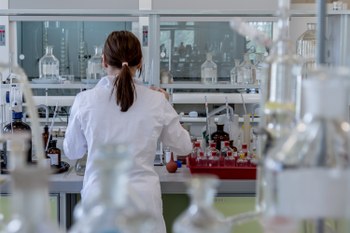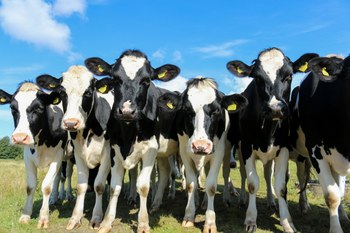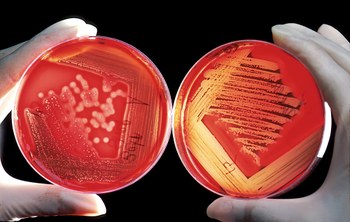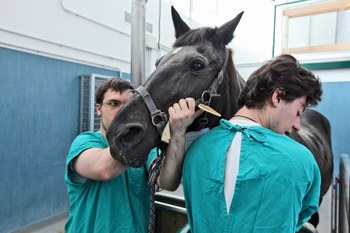Research topics

Curriculum 1: Basic Sciences
The curriculum of basic sciences includes the fields of veterinary anatomy and physiology and those of zoology, biochemistry and clinical biochemistry applied to veterinary medicine, experimental and translational medicine. The study is focused on all species of veterinary interest, non-conventional species, wild species and laboratory species. The research topics concern: structure, properties and functions of biomolecules; molecular and cellular biology; the molecular and biochemical basis of physiological and pathophysiological processes; the morphological and functional characteristics of the systems, organs and tissues of the animal organism, as well as their main morphofunctional correlates; homeostasis of the animal organism at molecular, cellular and tissue level; interactions between animal organism and environment: biochemical, neurobiological and ethological foundations; animal models for translational medicine. Research topics also include the development of biotechnological approaches for the study and manipulation of stem cells, biomaterials and tissue engineering also for regenerative medicine.

Curriculum 2: Animal Production and Food Safety
The research topics addressed are related to breeding, feeding and nutrition strategies, and genetic improvement of all species of zootechnical interest. Research is aimed at implementing innovative primary production processes, increasing the quality of products of animal origin, and improving the environmental sustainability of production and animal welfare. In the aquaculture sector, the main or emerging aquatic species marine/freshwater of commercial interest are considered, with reference to innovative and sustainable breeding techniques, development of feed and food strategies according to the principles of green and circular economy, reproduction techniques, improvement of animal welfare, product quality and safety. Furthermore, the problems connected with the control of the quality and safety of products of animal origin are considered. Relevant issues are addressed in terms of process and food transformation innovation, also in relation to sustainability, as well as the validation of processes and food products of animal origin, focusing on the risk assessment of emerging and non-emerging microbiological and chemical hazards associated with the production and consumption of food of animal origin, their management and control along the entire food chain.

Curriculum 3: Animal Health
The topics covered concern infectious and non-infectious diseases that can affect pets and livestock, wild and synanthropic, including those that can involve humans. The topics are explored starting from the study of the causes of diseases, whether they are transmissible pathogens (viruses, bacteria, prions, fungi and parasites) or other causes (pollutants, carcinogens, etc.), developing aspects relating to epidemiology, pathogenesis, macroscopic and histological aspects, diagnosis, therapy, prophylaxis and disease control, with particular attention to the possible implications in Public Health in a "One Health" perspective.

Curriculum 4: Clinical Sciences
The research topics concern veterinary internal medicine, reproduction, surgery, pharmacology and toxicology. In the internal medicine field, the topics are focused on internal medicine, emergency medicine, clinical pathology and diagnostic imaging with reference to diagnosis, therapy and prognosis of diseases of veterinary interest. In particular: endocrinology, oncology, neurology, cardiology, nephrourology, gastroenterology, hematology, infectious diseases, management of sepsis and healthcare associated infections.
The research topics related to reproduction are focused on the diagnosis and treatment of reproductive pathologies, strategies for improving reproductive efficiency and biodiversity in species of veterinary interest. In particular: pathophysiology, diagnostics, andrological, obstetric-gynecological
clinic and perinatology, medical and surgical therapy of the genital system and breast, study of the microbiota and antimicrobial resistance. Other
topics are related to natural and artificial fertilization, gamete conservation, stem cell differentiation, embryo production and related transfer protocols. The research topics related to surgery are focused on the diagnosis and treatment of oncological, orthopedic and neurological surgical diseases and the development of analgesic protocols for the management of chronic pain in order to improve the management and well-being of patients of all types of veterinary interest. In particular: pathophysiology of pain, advanced collateral diagnostics and treatment with innovative and minimally invasive surgical techniques. The subjects of veterinary pharmacology and toxicology, closely related to the previous ones, are focused on the development and validation of analytical methods for the detection of drugs and toxicants in various animal matrices.
Contacts
Coordinator: Prof. Carolina Castagnetti
For more specific information regarding the PhD in Veterinary Sciences
+39 051 2097571